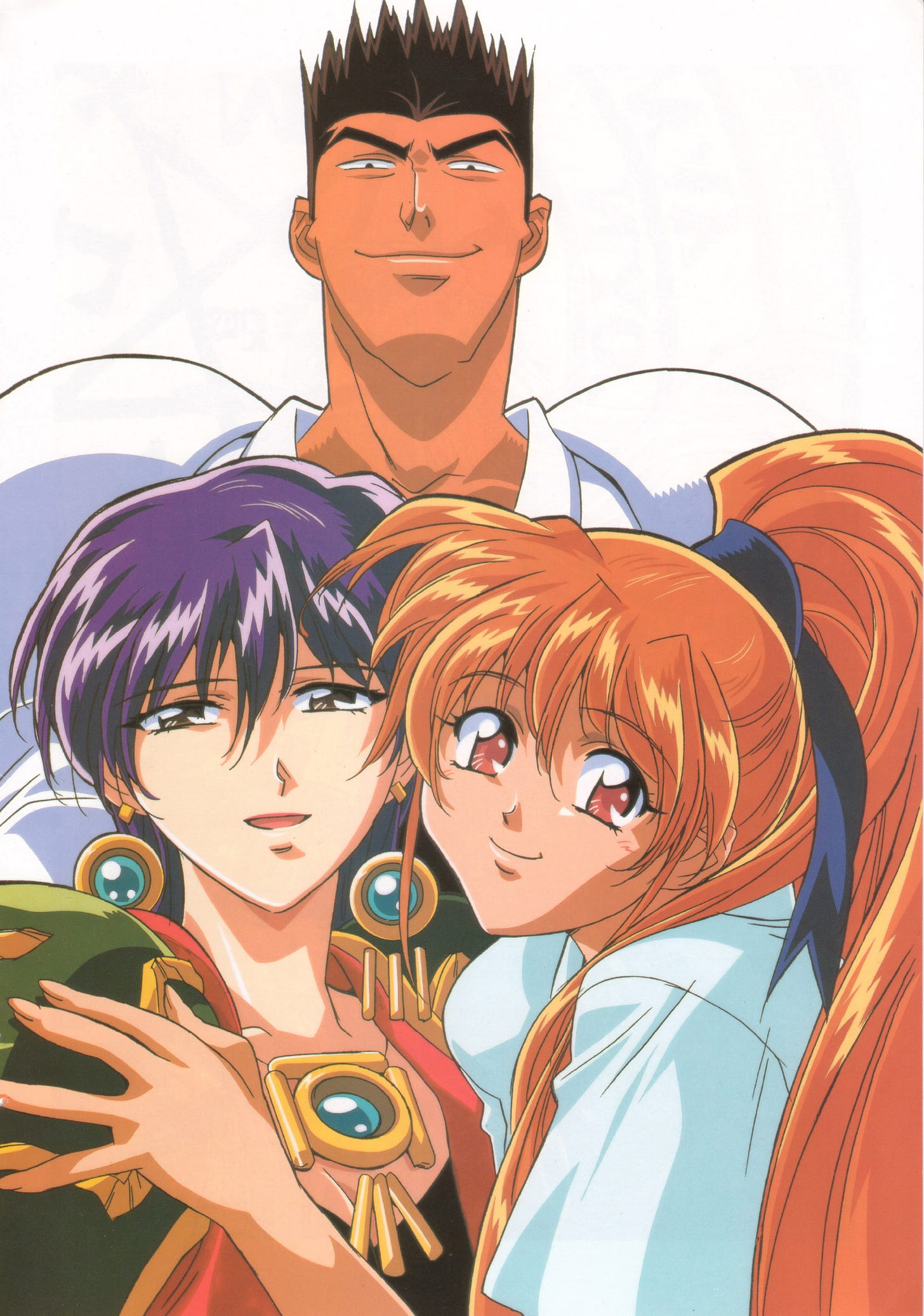I’m here to talk about the anime Those Who Hunt Elves, based on the Japanese shonen manga series written and illustrated by Yu Yagami, which ran in Dengeki Comic Gao! from 1994 to 2003. The anime series aired in 1996 for twelve episodes, followed by a second season in 1997.
The plot revolves around three travelers: Junpei Ryuuzouji (Tomokazu Seki JP/Andrew Kimiko EN), a 19-year-old karateka and strongman with incredible fighting ability, Ritsuko Inoue (Yuko Miyamura JP/Rozanne “Rozie” Curtis EN), a 16- (17- on the Japanese Wikipedia) year-old red-haired, ponytailed high school girl and military otaku who is a tomboy (and also the calmer version of Evangelion’s Asuka Langley Soryu, a character that Miyamura is known for), Airi Komiyama (Michie Tomizawa JP/Kelly Manison EN), a 24-year-old talented Japanese-American actress, the eponymous “Elf Hunters”, and the elven sorceress Mistress Celcia (Kotono Mitsuishi JP/Jessica Calvello S1 EN, Shelley Calene-Black S2 EN).
Elf Hunters seek five spell fragments placed on the elves’ skins, similar to tattoos, throughout the magical world they have been transported to. When they find them, they will be able to return to Japan. The Elf Hunters travel by means of a Type 74 tank, which has been transported to the magical world with them. The reaction of various elves as the team attempts to strip them naked is a primary basis for much of the show’s humor, and are more ridiculous than suggestive. The series is also known for breaking the fourth wall, mostly by Junpei.
The anime was released in North America on VHS and DVD by ADV Films (now closed) and later re-released by Sentai Filmworks. On June 12, 2015, the Chinese Ministry of Culture listed Those Who Hunt Elves among 38 anime and manga titles banned in China. The anime series is unavailable on any streaming service, even though the anime series’ English dub survives on YouTube thanks to these DVD releases. I never watched the series myself, and it was never aired on American or Canadian television because of the strict American and Canadian broadcasting guidelines at the time.
The Americans and Canadians need to have tougher stances on Indonesia because of its conservative nature, since the country wants to provide “a healthier internet”. If you have an online portfolio (must be self-hosted or attached to the TLD), block any Indonesian visitors from your site, do not purchase anything (fonts, graphics, etc.) made by Indonesian designers from Creative Market, and deny all art commissions from people from that country. Online content creators from the US and Canada need to reconsider moving (or traveling) to Germany since Steam has removed a massive catalog of games that do not have an age rating due to the country’s regulations and strict youth protection laws.







